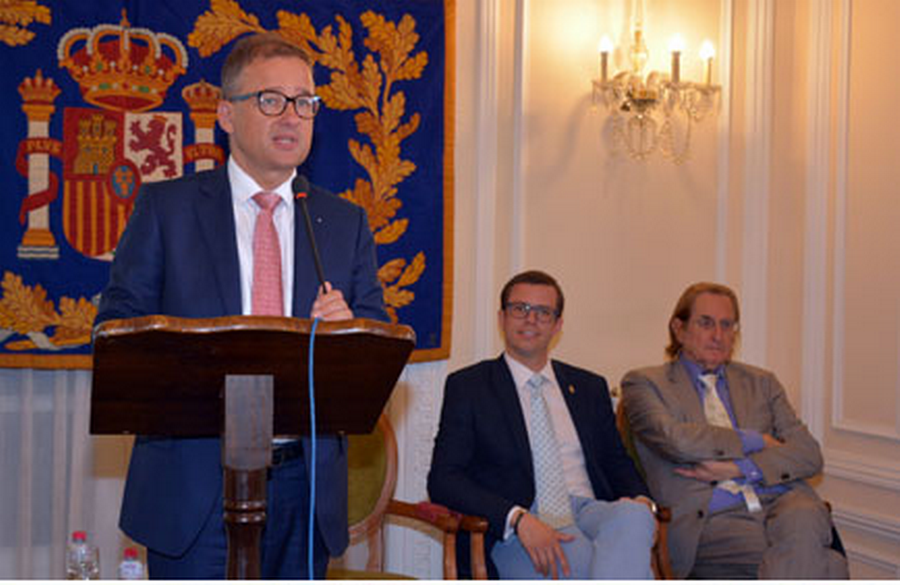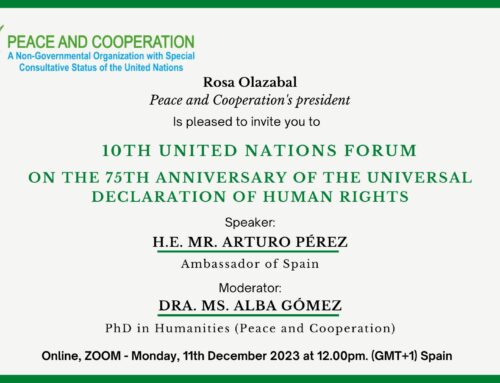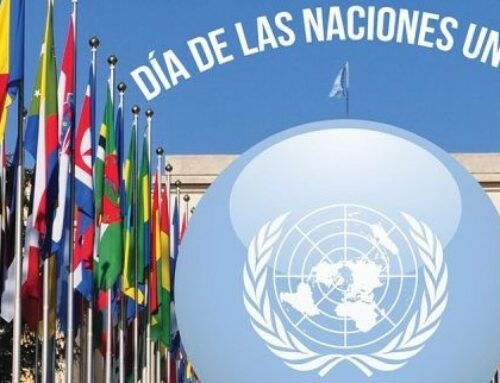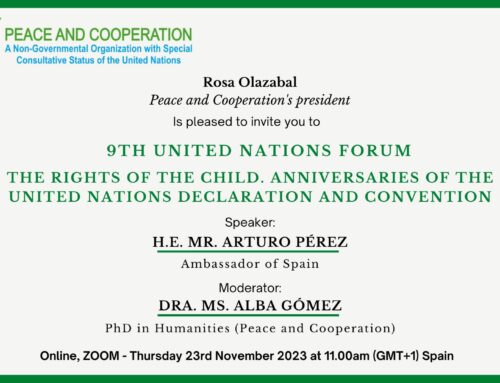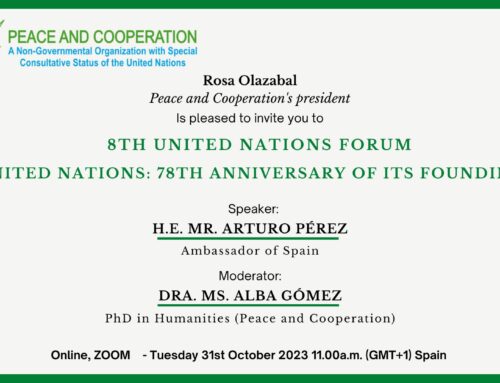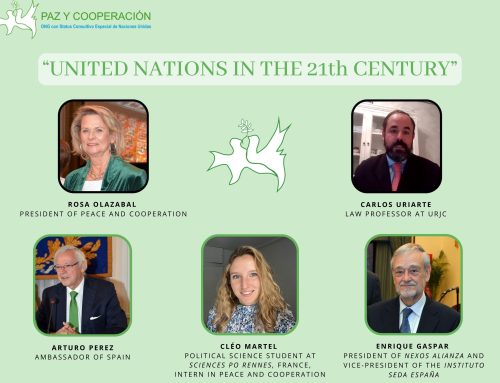In July 17 the lecture of the closure of the I United Nations Forum was held, organized jointly by Peace and Cooperation and the Riojano Center of Madrid. Through a wonderful lecture «Czech Republic – The Presidency of the Visegrad Forum», the Ambassador Ivan Jancarek showed that the countries of the Visegrad Group do not limit themselves to ehri status as ex-communist countries, but that they continue to favor a political and an economic cooperation to achieve the fundamental project of a reasonable Europe.
This is how the the lecture of this closure began. The president of the Riojano Center of Madrid, José Antonio Rupérez, presented the main topics of the lecture, insisting on the
fundamental role played by a European political group such as Visegrad to support the project of a strong and united Europe. After that, the President and Founder of Peace and Cooperation, Joaquín Antuña, intervened to thank the Ambassador for his participation in the United Nations Forum, an instrument at the service of debate and dialogue on global issues and challenges of the international community.
The Ambassador began his presentation by narrating the story of the Visegrad Group. in 1335, the Visegrad Agreement was signed, its first symbol of the will to establish a process of peace and cooperation among the countries of Central Europe.
The end of the USSR and the dissolution of Czechoslovakia allowed deepening this cooperation with the establishment of the Visegrad Forum in February 1991. From the “Visegrad Triangle” was born the “Visegrad Quartet” or “V4”.
Since this moment, the four countries of the group, Hungary, Poland, the Czech Republic and Slovakia joined forces to be part of the European Union. In this way, they entered NATO in 1999, which allowed strengthening exchanges with the international community above all with the United States.
Nowadays, some European actors question the relevance of the political group. However, the Ambassador insisted on the fundamental role of this regional cooperation for the human and economic development of Central Europe. This regional work can only reinforce the development of the European Union.
The Visegrad Forum has its own structure with a Presidency constituted by four presidents of each country. The presidents have a great responsibility on the issue of development. As well, the Forum organized a summit meeting to guide the political vision and harmonize the legislature, as well as councils of joint ministers and ambassador meetings.
The Visegrad Forum has several political and economic instruments to fulfill its mission. In 2000, the group established the International Visegrad Fund in which the countries contribute to it with a logic of justice. The aim of the Fund is to promote investment for human development, education and art.
The Visegrad Forum has the support of the international community with important and fundamental donations for its development. It receives donations from the United States, Canada, Japan and Korea.
To achieve this goal of a strong and reasonable Europe, the Visegrad Forum created a Combat Group to be prepared together with NATO and to strengthen its role in the international community.
The Ambassador explained that the Visegrad Forum has clear objectives for the future. The member countries want to ensure a political dialogue and reasonable solutions, revolutionary technologies and the conciliation of approaches.
The group faces many challenges such as the Brexit, the debate on the enlargement of the European Union and the issue of immigration. There is still the problem of different opinions among the group countries, since some members are very conservative while others are more liberal as Slovakia, which elected an ecologist president. Sometimes it is difficult to
achieve a united position on global issues in the Visegrad Group, the Czech Republic wants to maintain good relations with Great Britain.
The Ambassador concluded his fascinating lecture by recalling that the countries of the Group of Visegrad and Central Europe can not be defined only by their status as ex-communist countries. These are countries that continue to invest for the development of their population and that continue to defend the project of an united, strong and reasonable Europe to ensure a world of peace and security for future generations.
The Lecture concluded with the applause of the audience and with a series of very pertinent questions so that the Ambassador will demonstrate to have agility and skill to answer them and a fine political sense.
In conclusion, this I United Nations Forum finished with a great success of speakers and assistants to each of the chapters with the participation of six embassies and the presence of specialized press.
The II United Nations Forum will begin in September 2019 by holding new and wonderful lectures which will include the embassies of Tunisia, Algeria, Costa Rica and Turkey, the OSCE of Vienna and the United Nations, to discuss fundamental issues of the international community and continue to favor our global education project in the sumptuous framework of the Riojano Center.
Joaquín Antuña.

